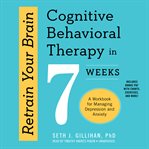Review by Booklist Review
Who wouldn't want to look and act like author Devi, the gorgeous, seemingly serene medical doctor on the cover of this advice book? Inspired by her quiet but ubersuccessful grandfather, who never lost his temper, the neurologist figured out how to control the emotions and impulses in her core brain. Her dog, who stopped getting anxious and sick in the car once he learned to relax and lie down, helped teach her that a calm body is a calm mind. But what she calls the mother of all calm is sleep, which can also enhance imagination and innovation, she says. Occasionally Devi sounds a bit too New Agey, but overall, her advice is sound and, well, calming: form long-lasting, close ties with other human beings (and laugh with them) and find a life partner who offers both companionship and romance. She also enthusiastically talks about Google's perks for employees, which include on-site haircuts and $500 reimbursements for takeout food for the first four weeks at home after a new baby arrives. Job change, anyone?--Springen, Karen Copyright 2010 Booklist
From Booklist, Copyright (c) American Library Association. Used with permission.
Review by Kirkus Book Review
A neurologist who specializes in the treatment of Alzheimer's disease and dementia explores how we can tap into "the neurology and physiology of our body's innate 'calm' mechanisms" to achieve greater health, happiness and success. The director of the New York Memory and Healthy Aging services, Devi (What Your Doctor May Not Tell You About Alzheimer's Disease, 2004, etc.) unravels the functioning of the core brain, where gut reactions are processed, and explains how we can train ourselves to relax and recharge in order to face the 24/7 pressures of the fast-paced modern world. The author describes the way in which the core brain works by controlling emotions and impulses as we navigate the outside world "and the vast environmental sensor and receptacle that is our body." Fight-or-flight reactions, as well as our relative sense of well-being or malaise, are mediated there by the vagus nerve, a frequently overlooked neural conduit that bypasses the spinal cord to connect with the body's organs. It provides a constant stream of information that tells the brain when to stress out and when to relax and monitors processes such as blood pressure. The core brain is the seat of the sympathetic nervous system, which releases an adrenaline surge when we perceive danger, and the parasympathetic system, which provides the all-clear signal when it is safe to calm down. Devi provides anecdotal evidence suggesting that meditation and yoga, by releasing bodily tension, cue the brain to relax, and she examines how affectionate gestures and shared laughter provide a similar release. A welcome alternative approach to overtaxing our brains and then reaching for the pill bottle--should warrant serious attention.]] Copyright Kirkus Reviews, used with permission.
Copyright (c) Kirkus Reviews, used with permission.

